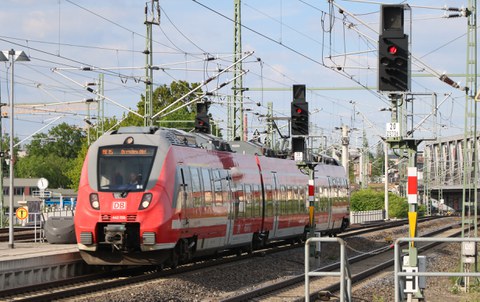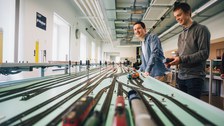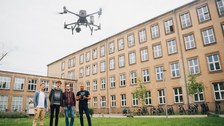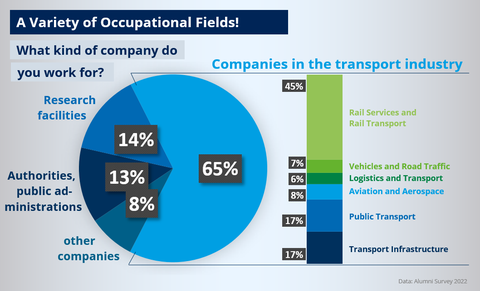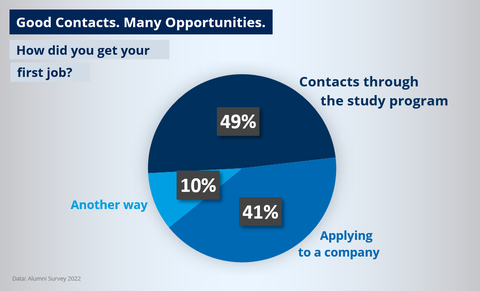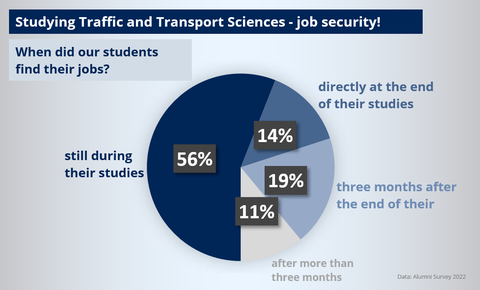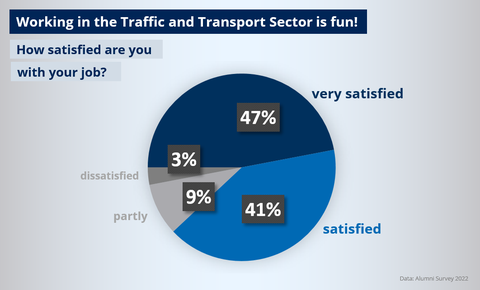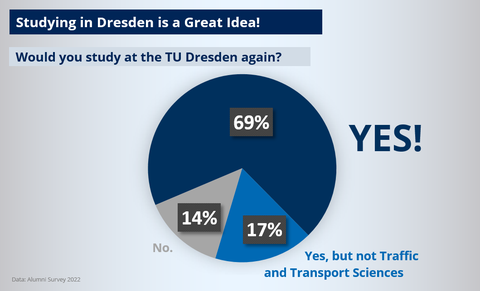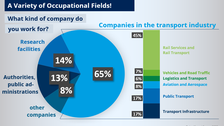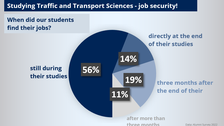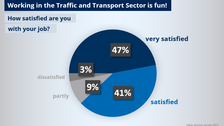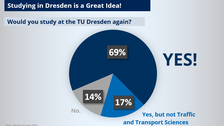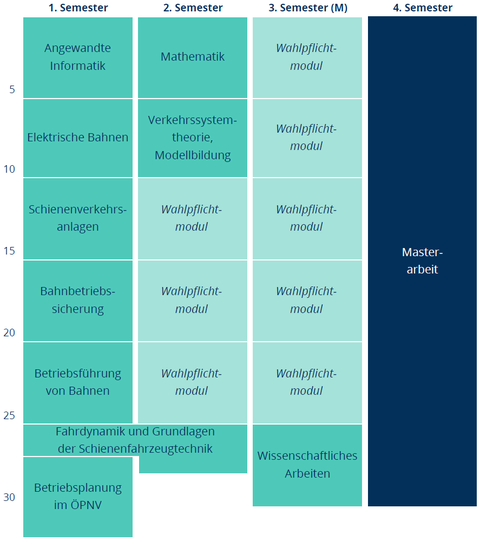Railway System Engineering (Master)
Railway traffic and local public transport (LPT)are significant factors in the intended mobility turnaround. In order to make travel and freight transport more sustainable, more traffic needs to be relocated from road to rail. As a result, the demand for railroad engineers is currently strongly growing.
And yet, the railway system is very complex: infrastructure, vehicles, and railroad operationsinteract with each other. The railway is efficient, very safe, and powerful; however, due to the strong interactions between the components, it can easily go off the rails, so to speak. The challenge for railway system engineers is to master these interactions and work towards a resilient system. The Railway Systems Engineering degree program provides skills and systemic knowledge appropriate for the complexity of railways and local public transport.
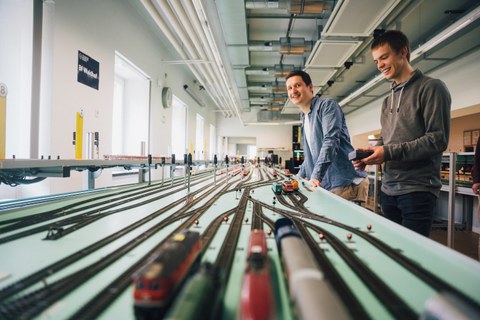
© Benjamin Jenak, TUD
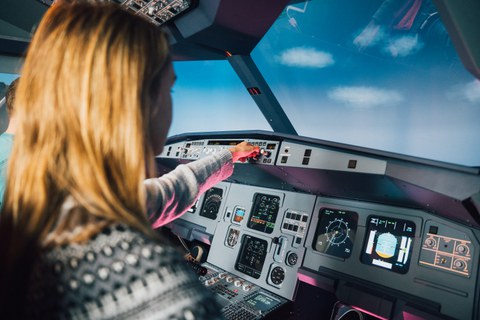
© Benjamin Jenak, TUD
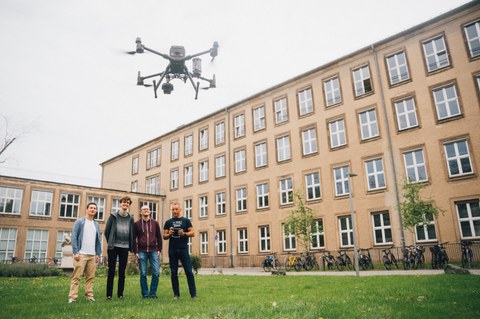
© Benjamin Jenak, TUD
| Degree | Master of Science (M. Sc.) |
| Standard period of study (full time) | 4 semesters |
| Primary teaching language | German |
| Part-time studies | possible (50 %) |
| Numerus clausus | no numerus clausus |
| Start of studies | Winter semester (October 1st) |
| Application period | June 1st - September 15th *April 1st - July 15th for international applications |
Studying Traffic and Transportation Science means job security! 70 percent of our students have their first permanent job while still studying or directly at the end of their studies. Almost all of our graduates enter attractive career paths after three months of job search at the latest. Career planning and orientation is a top priority for us even during our studies - with an annual in-house carreer fair, job portal, alumni association, and much more.
Possible occupational fields:
Graduates execute railway-related engineering activities:
— railraod infrastructure companies
— railway undertakings
— local transportation companies
— engineering offices
— regulating authorities
— rail industry
— building and assembling enterprises
In the master's program, general engineering modules provide the scientific foundation for our training. The subsequent modules allow our students to specialize their knowledge in the following areas:
- Railway systems and railway construction (planning, design, and construction of railway systems),
- Railway safety and telematics (safety in railway traffic, safety technology, and process control techniques),
- Railway operations (the planning and implementation of railroad operations) or
- Local Public Transport (the planning and implementation of the operation of local transport systems).
Alternatively, modules of several or all of these areas can be attended in order to acquire a broader knowledge of the field. As the program is taught in German, a sufficient knowledge of the German language is required (according to the rules of admission).
»In engineering offices, you work on a variety of transportation projects, so the tasks are diversified and stay interesting.«
»My work at the courthouse allows me to improve the local transportation systems and do good for my local community.«
»What I find exciting about my work is that we are able to design and shape the transportation systems of the next decade. In addition, we work on improving rail stations and their accessibility.«
»While working at the transportation company, I have a good overview and am able to influence the entire system. There are often many ways to solve a problem quickly and efficiently.«
»In my research, I have benefitted a lot from the professional training of the degree program. TU Dresden’s range of courses and degrees are internationally renowned in the field of transportation and traffic science.«
Prerequisite is a diploma (Diplom) or Bachelor's degree of a university (or university of applied sciences) in the fields of Engineering, Computer science, Geography, Geodesy, Physics or Mathematics or an equivalent or higher degree.
International applicants and German applicants with a foreign university entrance qualification are kindly advised to read the requirements for German-language courses.
If, at the time of application, proof of the first degree qualifying the applicant for a profession is not yet available, the application will be considered under the precondition that 80% of the credit points attainable for the degree have already been achieved based on completed module examinations or the final thesis and the colloquium (if applicable). A certification from the awarding institute of higher education (examination office) serves as proof of the above-mentioned academic achievements. You can find the appropriate form on the Admissions Office website.
All regulations concerning the study program are defined in the study documents, which have been officially announced:
Studienordnung (Amtliche Bekanntmachung vom 26.04.2023)
Prüfungsordnung (Amtliche Bekanntmachung vom 26.04.2023)
The curriculum and modules may be adjusted to meet current needs. These adjustments include the following not legally binding documents:
Modulbeschreibungen (aktuelle Lesefassung)
Studienablaufplan (aktuelle Lesefassung)
The degree program can completely or temporarily be studied on a part-time basis (50%). This may apply if you are caring for children or other dependents while studying, or if you yourself are affected by health issues.
While studying part-time, the standard period of study for full-time students and the examination periods are doubled. If necessary, you can switch between part-time and full-time studies between semesters. More information on part-time studies
A separate study schedule is recommended and issued for part-time studies. Adjustments must be made when switching between full-time and part-time studies:
Part-time study schedule
The video gives you the most important information about the online application. © TU Dresden
Did we convince you to study traffic and transportation? The follow this link to get important information for you application and to find the correct application portal for traffic and transport studies.
Application period:
June 1st - September 15th
April 1st - July 15th for international applications
Further information on Railway System Engineering (Master) in the Study Information Systems (SINS).
Multimedia insights into the study programs
In the online format "Sitzgelegenheit," students from our faculty are asked interesting and sometimes piquant questions from the TUD community. Why is Deutsche Bahn always late? What is your favorite means of transportation and what do you think transport will look like in the future?
© alpha Uni 2022
Excitement in the railway operation laboratory: Victor is in his 3rd semester of studying transport engineering at the TU Dresden. He has been interested in railroads since he was a child and that is why he decided to study here in Dresden. alpha Uni accompanied him to a simulation in the railway operation laboratory.
Contact Person
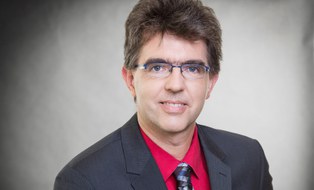 © Reichelt
© Reichelt
Academic Advisor
NameDr. Ulrich Maschek
Send encrypted email via the SecureMail portal (for TUD external users only).

